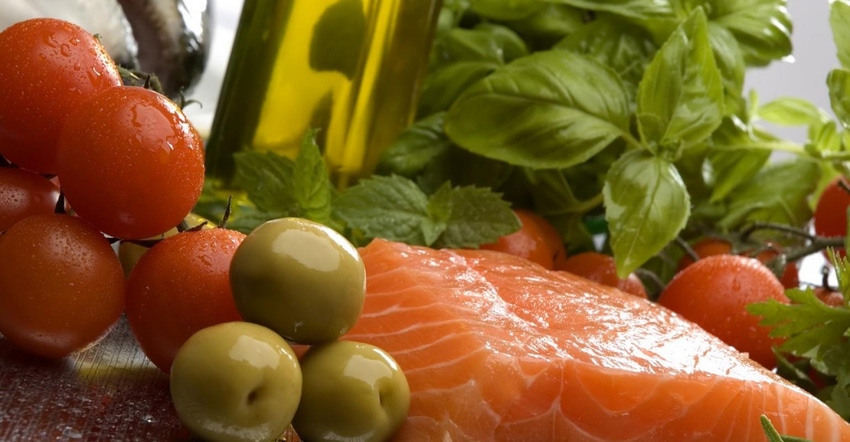A new, 18-month study has found that adding more polyphenols to a standard Med diet in the form of walnuts, green tea and duckweed improves its anti-aging potential.

Higher polyphenol intake has been associated with slower biological aging in a dietary intervention study conducted in Israel. This is the first time this correlation has been firmly established in this way, the authors claimed.
The new research was the work of a large team associated with the Harvard T.H. Chan School of Public Health, Brigham and Young Hospital in Boston as well as high-profile hospitals and universities in Israel and Germany.
The new research was published in the journal BMC Medicine. For research subjects, the team recruited employees working at a nuclear research facility in Israel where prepared lunches were provided.
Drilling down to what might make Med diet work
The goal of the research was to assess at a micronutrient level the impact of Mediterranean diet strategies on relative speeds of aging. Funding for the project came from German and Israeli research grants as well as a grant from the California Walnuts Commission.
Interest in the Mediterranean diet ramped up after 2004 with the publication of demographic work in the Journal of Experimental Gerontology that identified the island of Sardinia as having the highest concentration of male centenarians in the world.
A lot of factors figured into this, including considerations such as the social connections of these older people. But much emphasis was placed on their diet, which included lots of fruits, vegetables, whole grains and healthy fats.
The present research, dubbed the DIRECT-PLUS (dietary intervention randomized controlled trial— polyphenol unprocessed), was an 18-month randomized, controlled trial. The trial recruited 278 subjects who met the intake criteria, which were 30 years of age or more and big waistlines (40 inches or more for men, 34 inches for women) and/or high triglycerides and cholesterol numbers.
All diets were calorie-restricted
The subjects were randomly assigned to one of three groups. One group ate a standard “healthy diet” as defined by health authorities. Another ate a calorie-restricted Mediterranean diet (1500–1800 calories a day for men and 1200–1400 calories a day for women) that was augmented by 28 grams of walnuts a day.[LJ1]
The third group also got the walnuts and ate a calorie-restricted Mediterranean diet with the addition of three or four servings of green tea a day as well as 550-milliter frozen cubes of Mankai (Wolffia globosa duckweed cultivar) constituted as a green shake. The tea and the duckweed additions increased the polyphenol intake for this group by about 800 milligrams a day, the researchers said.
To measure how the diets affected biological aging, the researchers used a variety of so-called “biological aging epigenetic clocks of different generations,” all of which are based on DNA methylation.
In addition to these blood analyses, the researchers also measured polyphenol concentrations in the subjects’ urine.
Along with eating their assigned lunches, the participants filled out dietary questionnaires to judge their adherence to each of the three diets.
By the end of the study, all the groups had lost weight. The healthy guidelines group lost a bit less than two pounds on average, the Med group lost about six pounds and the high polyphenols group lost about 10 pounds.
High polyphenol group aged slower than others
At baseline, the researchers said they found good correlations between the subjects’ actual chronological ages (which averaged about 51 years of age) and the measurements of their biological ages, as assessed by the various clocks used.
The researchers found none of the participants had turned back their biological clocks. But in the high polyphenol group, those who were judged to have the best compliance with the diet and who showed the highest levels of polyphenols in their urine saw their clocks advance more slowly than did the others.
“Moreover, since these lifestyle changes were also associated with a beneficial effect on multiple health conditions, such as fatty liver, age-related brain atrophy and cardiovascular risk, they might further contribute to healthy aging,” the researchers said.
About the Author(s)
You May Also Like






.png?width=800&auto=webp&quality=80&disable=upscale)